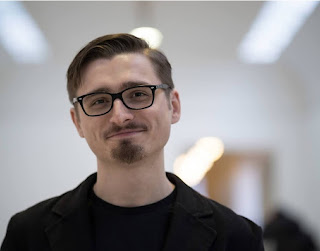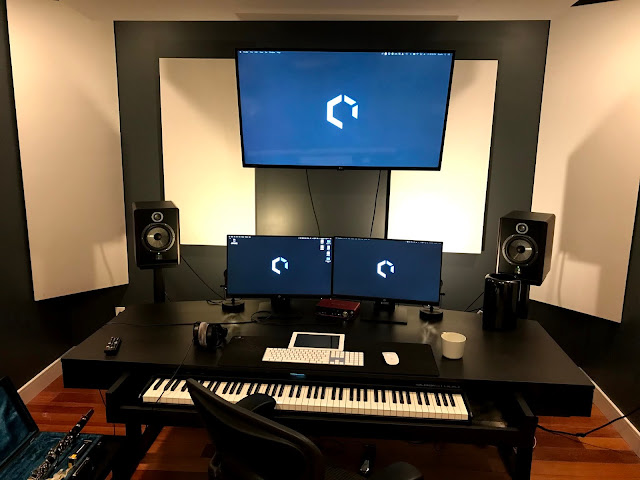Interview with composer Robert Wolf
Robert Wolf is a composer for film and video games living in Los Angeles, CA. He has worked on several of the worlds leading mobile games, such as Call of Duty: Mobile and Honor of Kings. He is a graduate of the USC Thornton School of Music. We have conducted a short interview with him.
Robert Wolf, Composer
In your opinion as a composer, how important is music in films and video games?
I think it is extremely important. It can have a huge effect on the emotional tone of a project and can sometimes be the one thing people remember long after watching the film or playing the game. I think the importance is being recognized more and more, given what a big part of pop-culture even old retro-video game soundtracks are these days.
Based on your personal experience, what is the style and composition that is highly in demand nowadays?
Video game music is extremely diverse. It is difficult to generalize, but many games use orchestral music, many strategy games or fantasy RPGs have beautiful orchestral scores and often record those live. But games like Death Stranding, which got a lot of deserved recognition, have fantastic soundtracks that are largely synth-based and only have some orchestral elements. Music for video games can really fall into any genre besides these. I recently wrote quirky circus-inspired music for Call of Duty: Mobile, for their Easter special, since the map featured a circus tent. This shows that even a game like Call of Duty, which many people might associate with a more traditional action soundtrack, can feature many different genres of music. Our studio produces a lot of orchestral music that has elements inspired by the Chinese or Japanese musical tradition in them, for games like Honor of Kings, but we also produce a whole range of other styles, from electronic to folk-inspired tracks or even rock and metal. For us, orchestral music is certainly still the biggest genre, but we are very happy that the clients ask us to write music in so many different genres.
Which genre of mobile games are you working on?
I have worked on Multiplayer Online Battle Arena (MOBA) games, like Honor of Kings, shooters like Call of Duty: Mobile, chess-style strategy games and many others.
Which are the biggest video games and films you have worked for?
The biggest titles that I wrote music for are Honor of Kings, a hugely successful Chinese mobile game and Call of Duty: Mobile, the mobile adaptation of the well-known shooter franchise. Both of these games are amongst the biggest mobile games in several ways. Call of Duty: Mobile is the most successful mobile game currently, with over $327 million of revenue generated from player spending and over 250 million downloads since it was released.
What is your working experience with such big organizations like?
It is actually very straight-forward. I get assignments with reference tracks and some comments on how long the track needs to be, whether it should be loopable and similar requirements. After that, I go about writing my music, often recording live instruments on top of my tracks. I then send the music out to the client. They come back to us with any feedback they might have, and we change the tracks based on that. So, it is a very professional and direct communication. I really love working in this way because I get so many different tasks, meaning one client might require me to write music for a full orchestra and the next might ask me to write a lofi track or quirky circus music. I love this kind of variety; it keeps the job very exciting and demanding.
One really cool aspect of working for such popular games like Call of Duty: Mobile is seeing how players play the game and react to my music. It is rewarding to see streamers explore the new content that has my music in it because it really connects my own life as a gamer with my work as a composer.
How did your career take off since you moved from Germany to the US?
After I graduated from USC, I was working on several exciting freelance projects. I have also worked in music preparation on a number of big movies like Sonic the Hedgehog and Terminator: Dark Fate. These projects were really exciting and gave me further insight into the Hollywood industry, which I was hoping for. Not long after graduation, I was hired as an in-house composer at Hexany Audio, which is a leading provider of game audio and music here in Los Angeles. It has been a blast working for them since I get to work on some rather big IPs on a daily basis. Being surrounded by such talented colleagues is simply inspiring because it encourages us to learn from each other, but I also really like the well-organized work environment and the regular work hours. All of these aspects are quite different from working as a freelance composer, and I feel really fortunate to be able to experience it.
What has been the most challenging aspects of your work so far?
When I started at Hexany, I wasn't exactly fast in ProTools since my main software at the time was Logic. So, I had to adjust my workflow and become as efficient in ProTools as I was in Logic. Apart from that, the extremely diverse music requests can be a challenge, there are many situations where I need to get comfortable with writing music in a new, unfamiliar style. However, I also love the process of researching and learning about new instruments and new musical traditions.








